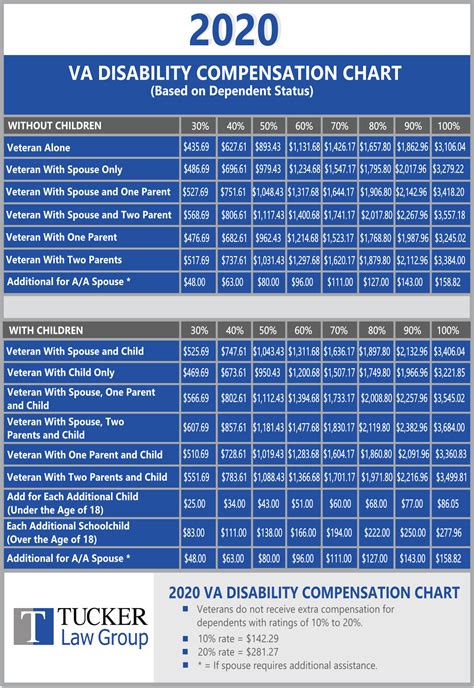5 Tips Texas Disability Benefits

Understanding Texas Disability Benefits: A Comprehensive Guide

When it comes to navigating the complex world of disability benefits in Texas, it’s essential to have a clear understanding of the process and what to expect. With so many individuals and families relying on these benefits to make ends meet, having the right information can make all the difference. In this article, we’ll delve into the key aspects of Texas disability benefits, highlighting five crucial tips to help you navigate the system with confidence.
Tip 1: Eligibility Criteria - Know What Qualifies

To qualify for disability benefits in Texas, you must meet specific eligibility criteria. The Social Security Administration (SSA) is responsible for determining whether an individual is disabled and eligible for benefits. The SSA uses a five-step evaluation process to assess your claim, considering factors such as: * Your medical condition and its severity * Your ability to perform basic work activities * Your age, education, and work experience * Your residual functional capacity (RFC) * Whether your condition is listed in the SSA’s Blue Book, which is a manual used to evaluate disability claims
Tip 2: Application Process - Gathering Necessary Documents

Applying for disability benefits in Texas can be a lengthy and documentation-intensive process. To ensure a smooth application process, it’s essential to gather all necessary documents beforehand. Some of the key documents you’ll need to provide include: * Medical records: Detailed records of your medical condition, including diagnoses, treatments, and test results * Work history: A comprehensive record of your work experience, including job descriptions and pay stubs * Identification: Proof of identity, such as a driver’s license or passport * Income information: Documentation of your income, including tax returns and W-2 forms
Tip 3: Types of Disability Benefits - Understanding Your Options

There are two primary types of disability benefits available in Texas: Social Security Disability Insurance (SSDI) and Supplemental Security Income (SSI). Understanding the differences between these two programs is crucial in determining which one you may be eligible for. The main difference between SSDI and SSI is that SSDI is based on your work history and payroll tax contributions, while SSI is a needs-based program that provides benefits to individuals with limited income and resources.
Tip 4: Appeals Process - What to Do If Your Claim Is Denied

If your initial claim for disability benefits is denied, don’t give up. You have the right to appeal the decision and request a reconsideration. The appeals process typically involves: * Reconsideration: A review of your claim by a different SSA representative * Hearing: A face-to-face meeting with an Administrative Law Judge (ALJ) to discuss your claim * Appeals Council: A review of your claim by the SSA’s Appeals Council * Federal court: A final appeal to a federal court, if necessary
📝 Note: It's essential to have an experienced disability attorney or advocate by your side throughout the appeals process to ensure the best possible outcome.
Tip 5: Managing Your Benefits - Post-Award Tips

Once you’ve been approved for disability benefits, it’s essential to understand how to manage your benefits effectively. Some key things to keep in mind include: * Benefit amount: Understanding how your benefit amount is calculated and what factors may affect it * Work incentives: Knowing how to return to work without jeopardizing your benefits * Reporting changes: Informing the SSA of any changes in your income, marital status, or living situation * Reviewing your claim: Regularly reviewing your claim to ensure you’re receiving the correct benefit amount
| Benefit Type | Eligibility Criteria | Application Process |
|---|---|---|
| SSDI | Work history and payroll tax contributions | Apply online or in-person at an SSA office |
| SSI | Income and resource limits | Apply in-person at an SSA office |

In conclusion, navigating the complex world of Texas disability benefits requires a clear understanding of the process and what to expect. By following these five tips, you’ll be better equipped to manage your claim and ensure you receive the benefits you deserve. Remember to stay informed, seek professional guidance when needed, and don’t hesitate to reach out to the SSA or a disability advocate for support.
What is the difference between SSDI and SSI?

+
SSDI is based on your work history and payroll tax contributions, while SSI is a needs-based program that provides benefits to individuals with limited income and resources.
How do I apply for disability benefits in Texas?

+
You can apply online or in-person at an SSA office for SSDI, and in-person at an SSA office for SSI.
What happens if my claim is denied?

+
You have the right to appeal the decision and request a reconsideration. The appeals process typically involves a reconsideration, hearing, Appeals Council review, and federal court appeal, if necessary.



